The previous day’s discussions had been lingering-on in the minds of AK and Rajesh so much that even the name of their small WhatsApp group got changed from ‘Golf Buddies’ to ‘Golf & Retirement’ by Rajesh late at night! Next morning, all three of them joked about how just one discussion turned them into serious ‘oldies’ from jovial golfers the other day!
AK and Rajesh were hungry for more information and knowledge from Pranav because they realized that they can no longer postpone it, now that the D-day was just around – or rather, actually rushing at them.
“No better option than to learn from the mistakes of a childhood buddy,” quipped AK in their early morning WhatsApp banter.
AK was becoming more and more anxious for this discussion as the first round itself had put him on the back-foot. All his life, he had been religiously following the learnings from his family elders. Almost all of his savings were invested in real estate and gold. He often struggled to find a safe and reliable locker in a bank branch after every new posting to keep the gold safe. He was also acutely aware deep inside of the worries he had regarding encroachment on the land he had purchased, the continuous renovation and repair expenses, and the associated headaches, on the flats he had purchased in different cities.
On the other hand, Rajesh had been quite laid-back about savings all his working life. He had just been investing in the Defence Services Officers’ Provident Fund (DSOPF), as that was the easiest thing to do. He too had been thinking if he needed to change his strategy – or actually, to adopt a real investing strategy!
The trio met at the Golf Club. While Pranav was ready for a game, AK and Rajesh had their thoughts elsewhere. This was quite evident as the enthusiasm towards the game from both of them was quite low. Pranav understood what was going on and suggested wrapping-up the round quickly and go to the cafeteria.
“I see that the discussion from yesterday has stayed with you both. Knowing you for so long, I didn’t expect both of you to get so serious about retirement, that too by ignoring our beloved golf!”, Pranav said, as the trio were waiting for their coffee.
AK was the first to open up. “You know I have been investing in real estate and gold for so long. While I won’t say that I am unhappy with my investments, I do feel burdened at times. I need to keep an eye on the properties to ensure there is no encroachment or to ensure that there is no serious repair required. The monthly visits to the bank branch just to check the locker and its contents too have become a pain to be honest,” he said.
Pranav sensed the discomfort. “You need to take into account a few factors for all of your investments. Suitability, liquidity and returns (SLR) – an acronym we all know so well from that ubiquitous rifle. The priority for the last two can be interchanged, but the first one is the most important.”
Taking the real estate example, he highlighted how having multiple properties – commercial, residential and/or agricultural – was not suitable for AK. “Your kids are already abroad. A property in India is more of a headache than anything of real value to them. Just imagine, if something happens to you, how will your wife and the children abroad handle these scattered properties. As such, real estate, even in normal times, is a problem. Also, would you really be able to handle them as you grow old?”, Pranav cheekily said.
The excess real estate investments also fail on other two parameters, as the rental income is less than what you could get even from a lowly fixed deposit, and the investments are largely illiquid, he said.
“In all likelihood, the high value you have assumed for your real estate investments is largely in your head. Once you start looking for a buyer, you will realise that the actual value is probably lower. It is also difficult to sell any property. And while you’ve not sold them, do you know that the rental returns from residential property in India is in the 1½ – 2½% range only of their capital value? If you sell the property and put it even in your savings bank account, you will get much more. Earlier also the rental returns were bad but still properties used to appreciate in value. Right now, there has been no appreciation for the past 7 years, rather depreciation only, and this trend is not likely to change for next few years due to huge over-supply right now across the country.”
“Which means that my decision to only invest in the DSOPF was a wise one,” Rajesh happily said.
“Yes, to some extent because DSOPF is fairly liquid and you can take out money from it when required. Its tax-free status also makes it much better. But then you may have really lost a lot of opportunity available in other growth avenues like equity markets. Had you invested in a good equity mutual fund for these 34 years, you would have got a minimum of 15% average yearly returns over this period, considerably higher than DSOPF. Equity was tax-free too over this period,” Pranav said.
AK was now curious to know Pranav’s point of view on Gold. “Everything is excess is bad, including Gold. While some say 5-10% Gold in the overall portfolio is desirable, anything more may actually harm your portfolio. Also, a feeling that Gold is a safe investment to have is not true. If you see a Gold chart drawn up over past 5, 10 or 15 years, you will actually feel that you are looking at a stock market chart due to the huge fluctuations gold price goes through. Still, if you need to buy Gold for investment purpose, never buy any sort of physical Gold. Take it only in electronic forms like Gold ETF or Gold Mutual Fund,” he said.
Rajesh was still more confused after hearing such a long treatise on investing. He asked Pranav, “Bhai, you have talked about so many things today. What do I take to be your parting shot for the day?”
“Rajesh, by talking about so many investing avenues, I basically was trying to bring home the point that SLR – Suitability, Liquidity and returns – should be your guiding principle. Simply see what suits you for the requirements that you are investing, will it give you the required amount of money when you need it and would its returns be reasonable? For example, you should not invest in stock markets for your daughter’s marriage next year, or so-called safe instruments for a requirement coming up more than 4-5 years later, or in real estate in your retiring years. If you follow this simple, logical and intuitive guideline, all will be fine”, said Pranav.
On this cheerful note, the three golf buddies did a Hi5 and parted ways to come back for another ‘Golf & Retirement’ round the next day.
Gyan Collected:
- Investing, whether small or big amount, is largely a matter of logic and common sense. Only when we let it be clouded by external biases and influences, do we start going wrong.
- All eggs in one basket has never been a good philosophy to follow. Diversify the investment. But on the other hand, do not diversify just for the heck of it.
- At the time of retirement, liquidity should become an important parameter. Ultimately your lifestyle will be decided by what you can spend or take out for your needs and not by the amount of money that is locked in illiquid assets.
- What investment avenues to choose should be decided by your future requirements and ‘risk profile’ and not by the templates your neighbour, course mate or peer group has influenced you with. Your life is unique and you deserve to have the very best there!


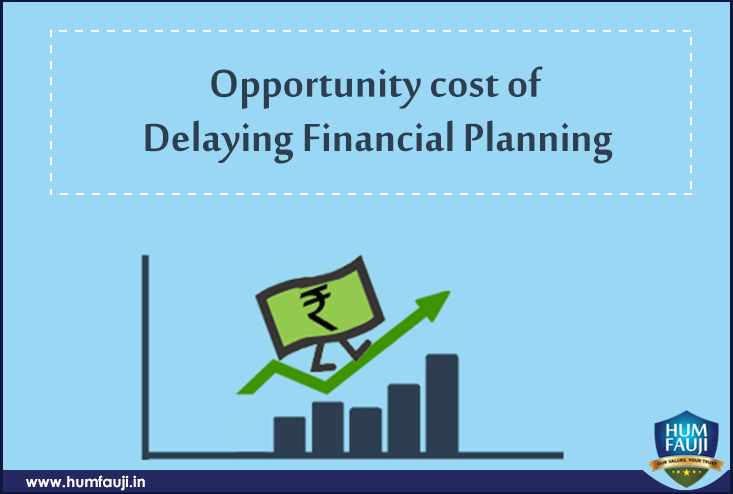

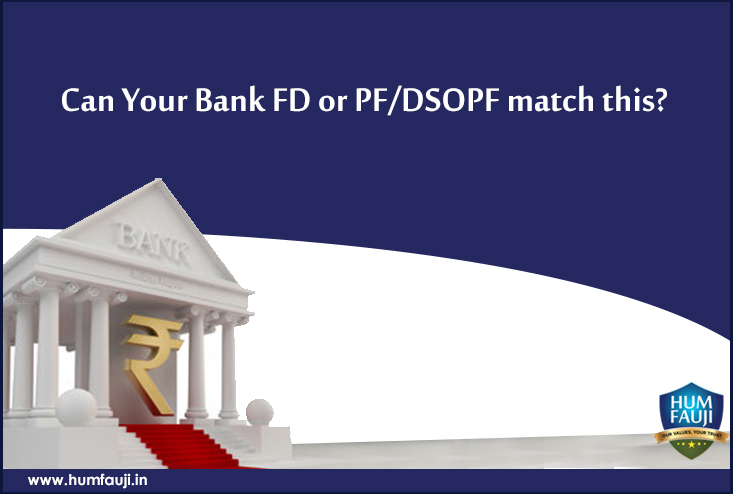


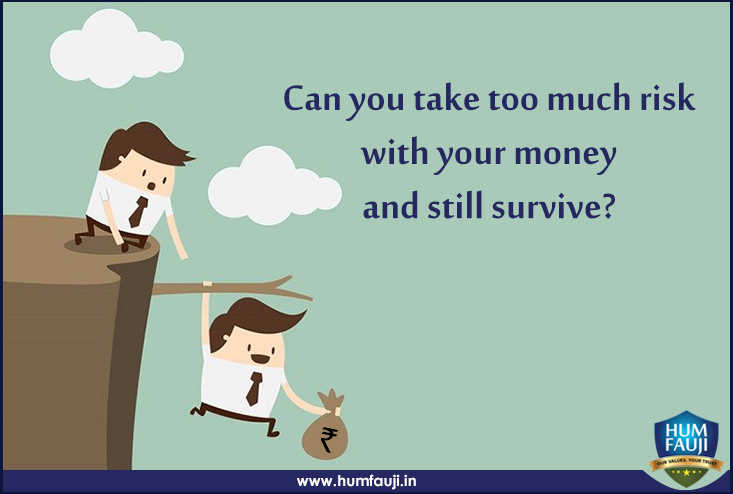
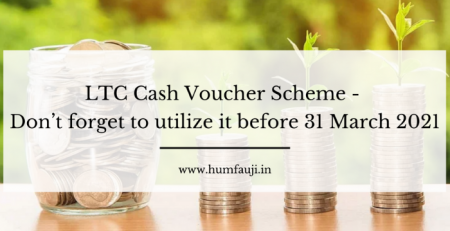


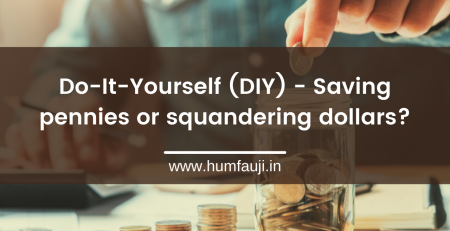

Leave a Reply